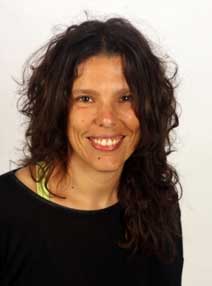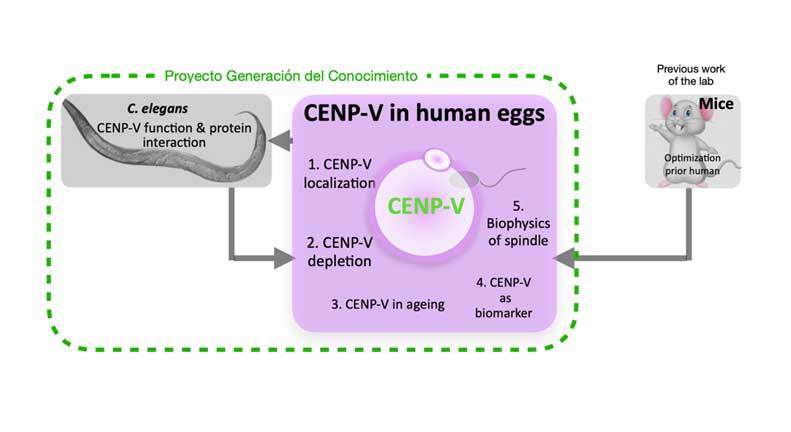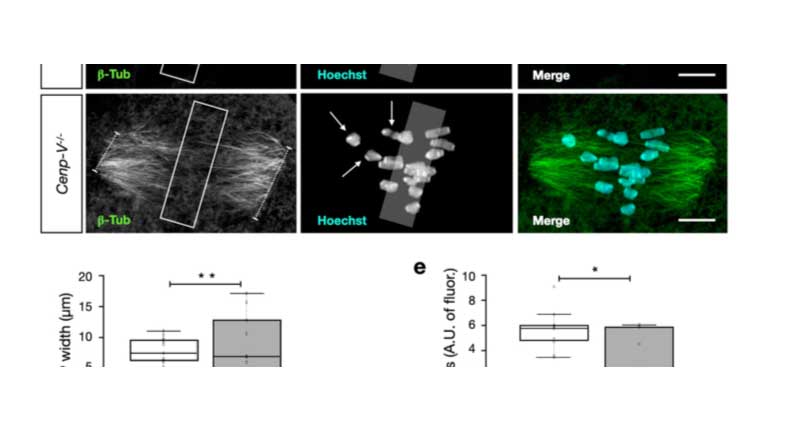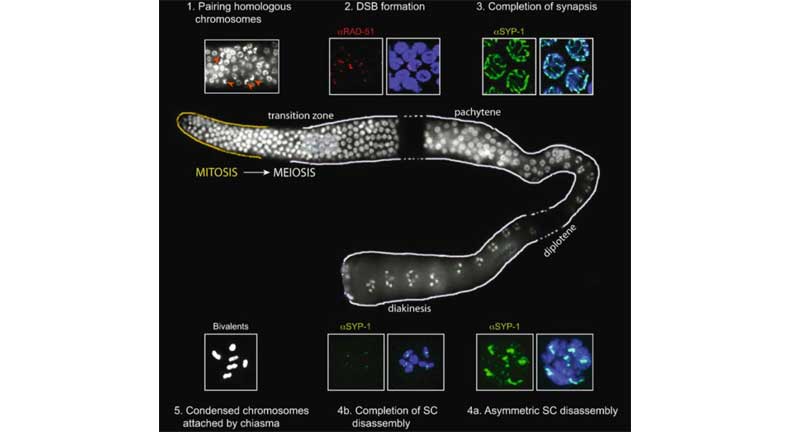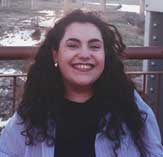My name is Carmen María Vargas Fernández, and I am a biologist with a deep passion for science and research. I completed my degree in Biology, followed by a Master’s in Advanced Biology (both at Universidad de Sevilla) where I carried out my Master’s thesis project in Dra. Mariola Chacón Lab. Later, I also studied a Master’s in Assisted Reproductive Technologies.
Nowadays, I am pursuing my PhD in Dra. Mariola Chacón Lab. My research focuses on the protein CENP-V, studying it in both human oocytes and the model organism Caenorhabditis elegans.
My main interest lies in understanding human meiosis — a specialized type of cell division that reduces the chromosome number by half, essential for the formation of gametes (eggs and sperm). In humans, meiosis is a highly regulated and error-prone process, especially in oocytes, where mistakes can lead to infertility, miscarriages, or aneuploidies such as Down syndrome.
For anyone interested in our project, you are more than welcome to reach out or get involved. Even though we are a small research group, we are passionate, collaborative, and always open to new ideas and perspectives! You will love it!


